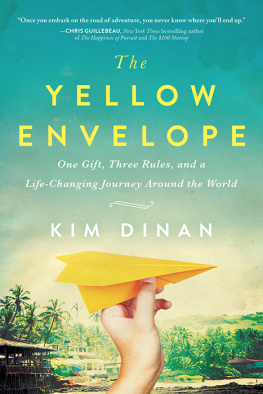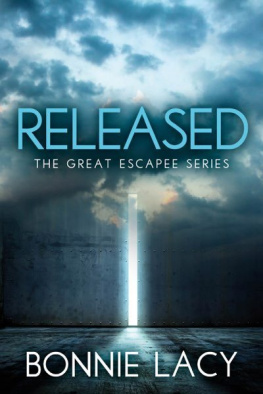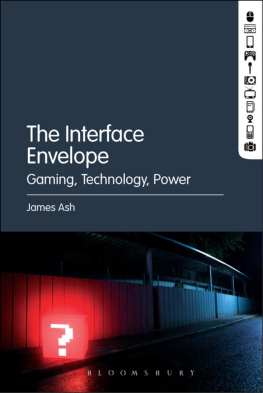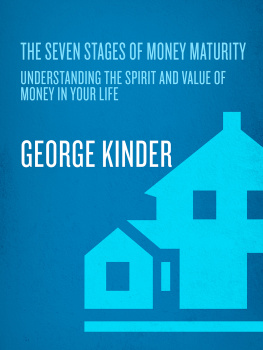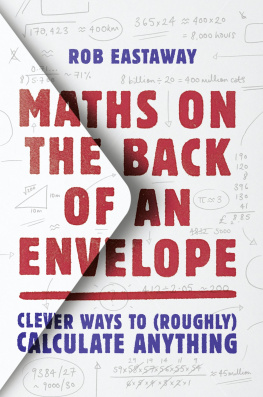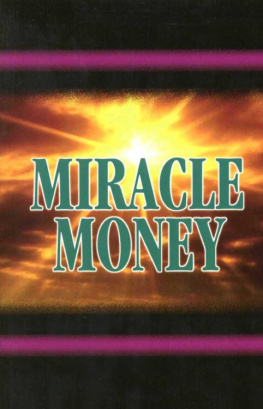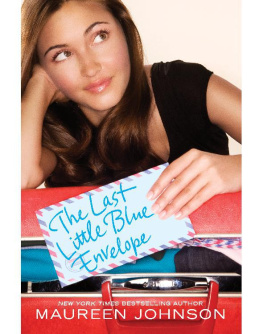Cover and internal design 2017 by Sourcebooks, Inc.
Cover images Curioso/Shutterstock, Phonlamai Photo/Shutterstock, Valentin Agapov/Shutterstock, sword_sf/Shutterstock
Sourcebooks and the colophon are registered trademarks of Sourcebooks, Inc.
All rights reserved. No part of this book may be reproduced in any form or by any electronic or mechanical means including information storage and retrieval systemsexcept in the case of brief quotations embodied in critical articles or reviewswithout permission in writing from its publisher, Sourcebooks, Inc.
This book is a memoir. It reflects the authors present recollections of experiences over a period of time. Some names and characteristics have been changed, some events have been compressed, and some dialogue has been re-created.
All brand names and product names used in this book are trademarks, registered trademarks, or trade names of their respective holders. Sourcebooks, Inc., is not associated with any product or vendor in this book.
Published by Sourcebooks, Inc.
P.O. Box 4410, Naperville, Illinois 60567-4410
Names: Dinan, Kim, author.
Title: The yellow envelope : one gift, three rules, and a life-changing journey around the world / Kim Dinan.
Identifiers: LCCN 2016040631 | (pbk. : alk. paper)
Subjects: LCSH: Dinan, Kim--Travel. | Voyages around the world. | Generosity.
Classification: LCC G226.D56 A3 2017 | DDC 910.4/1--dc23 LC record available at https://lccn.loc.gov/2016040631
Prologue
Wendy and I stepped out of a creaky, multicolored boat onto the dust-packed bank of the Tungabhadra River. The river ran as dark and lazy as a slough. Three women in colorful saris beat their laundry on rocks near the riverbed. A small gang of boys splashed and shrieked in the sleepy current, naked and skinny as baby birds. We started a slow, meandering walk along Hampis main road. Heat pulsed from the dirt streets and crawled up my legs as we shuffled past coffee shops, tourist hostels and roadside stands that sold miniature Ganesh figurines.
Across the road a teenage boy sat slumped in a black and yellow rickshaw that hed parked in the shade under an outcropping of boulders. He perked up when he saw us. Hello! he waved. HELLOOO! YOU NEED RICKSHAW?
I looked up and squinted into the sunlight. How much? I yelled, swiping my arm across my sweaty forehead.
For you, he called back, eight hundred rupees. GOOD PRICE!
The price he asked was nothing, really, in the scheme of things, but I knew he charged more than he should. I shot him my best youve-got-to-be-kidding look. During my time in India Id developed a cat-in-the-bathtub response to being ripped off. Plus, haggling was a way of life in India. Hed double the price, Id halve it, and wed meet in the middle.
I shook my head no and resumed my slow pace down the road; tiny beads of sweat flew from my hair and plopped onto the dirt street like raindrops. Too much! I yelled. Rule one of haggling: you must be willing to walk away.
But the rickshaw driver wasnt giving up so easily, and I didnt expect him to. He called after us, Maam, fair price. It is fair price! I will drive you anywhere you want to go! We go to Monkey Temple and Lotus Temple and Old Town. All day we drive. FAIR PRICE!
He jumped in his rickshaw to follow us. Its true maam, its true. A very fair price. His rickshaw bumped beside us on the pockmarked road as he leaned his head out trying to woo us.
My eyes fell on Wendy, who shrugged her shoulders, then back on the driver, and I shook my head in disagreement. No, it is not a fair price. Six hundred rupees is what I will pay. It was true that I wanted a fair price. But I realized with surprise that a part of me just wanted to win this bidding war. Id come a long way from my first tentative days on the road, nine months ago.
Maam, okay, okay. I will drop the price. Six hundred rupees. If you are happy you pay seven hundred.
Pausing for a second, I calculated the math in my head. Wendy leaned over. Kim, youre arguing over two dollars. Its hot as hell. Lets just take the rickshaw. He seems like a nice guy.
I turned to him and smiled, conceding. Okay, six hundred rupees. If we are happy we will pay seven hundred.
He smiled back, a white, toothy smile, and his hair flopped down into his eyes. Wendy and I climbed into the back of his rickshaw, and together we bumped off down an empty dirt road toward the Monkey Temple.
The craggy ruins of Hampi spread out before us. I stole a glimpse at Wendy, her head cocked toward the window as she watched the rocky geography pass. The terrain looked like nothing I had seen in India, or anywhere for that matter, like an ancient giant had dropped boulders the size of houses haphazardly across the open land.
The bright sun scorched my face, and I closed my eyes. A hot breeze whipped my hair into a cyclone. I folded my hands into my lap and absentmindedly felt at the place on my left ring finger where my wedding band used to be. My thoughts turned toward Brian. What was he doing right now? Did he miss me?
I was imagining him in southern India, stopped at a roadside stall drinking chai, when the windshield of our rickshaw, violently and without warning, exploded into thousands of jagged pieces. Shards of glass blew over our driver and toward Wendy and me in a powerful wave.
My eyes snapped open. Outside of the rickshaw, the world pausedstill and silent. Inside, my heart slammed against my chest, and the sudden rush of blood drummed in my ears. Had we been shot? It seemed like a ridiculous notion, yet something had shattered the windshield. I looked down at my body. It was covered in glass but intact. What happened? I finally uttered. I looked up at our rickshaw driver, who still puttered down the road, wide-eyed and blinking, skinny rivulets of blood streaming down his arms.
Stop driving, Wendy finally managed. She leaned forward to tap our driver on the shoulder. You need to pull over.
We steered onto the side of the road and our driver sat silently, unmoving, his hands still gripped tightly to the steering wheel. Tiny pieces of glass were stuck in his eyelashes like snowflakes. His arms were dripping blood.
What happened? I said again. Did a rock hit the windshield? Were we shot?
Our driver did not answer.
Wendy and I climbed out of the rickshaw. We picked the glass from our clothing and out of the backseat. After a few moments our rickshaw driver stood too and began to dust the glass from his body.
Are you okay? he asked us.
We nodded and I pointed to his arms. Youre bleeding.
Our driver looked down and wiped his bloody arms on his jeans and for a second I thought he might cry.
This is not my rickshaw, he said. I just rent it. He shook his head in disbelief. Bad karma, he muttered, more to himself than to us. Bad karma.
We stood in silence on the side of the road, staring at the rickshaw like we would a lame animal, and watched as our driver pulled the remaining jagged shards of glass from the windshield. The frantic beating of my heart began to slow. We are fine , I told myself. The windshield just broke because of the potholes.

